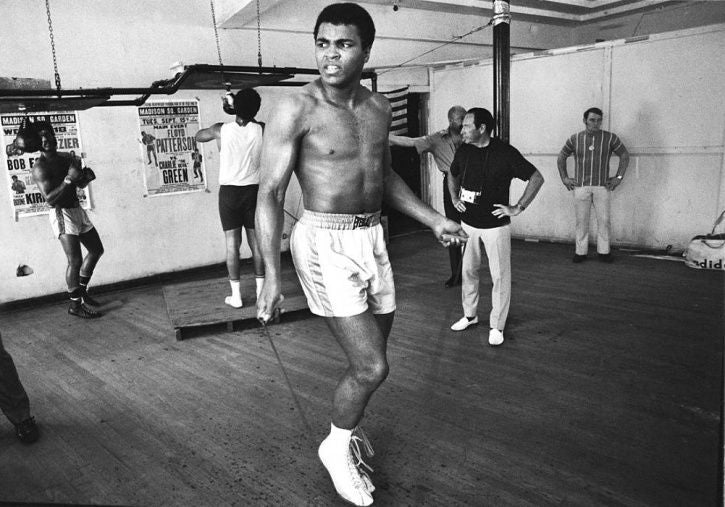“Service to others is the rent you pay for your room here in Earth.”
–Muhammad Ali
Muhammad once said, “I am America. I am the part you won't recognize. But get used to me. Black, confident, cocky; my name, not yours; my religion, not yours; my goals, my own; get used to me.”
What Muhammad meant by this statement was America was a country of diversity, and he was the part of that slice of America which was often not seen, or heard. He used his athletic platform to amplify the voices of other Black and brown people so their voices could be heard. Muhammad was not intimidated by those who vilified him, and he never backed down. He spoke the truth. Muhammad Ali was a compassionate disrupter.

The month of February is an annual observance for Black History Month, where it is also known as African-American History Month. It has received official recognition from governments in the United States and Canada, and more recently has been observed in Ireland, the Netherlands, and the United Kingdom. It began as a way of remembering important people and events in the history of the African Diaspora. Since 1976, every U.S. president has officially designated the month of February as Black History Month.
The precursor to Black History Month was created in 1926 in the United States, when historian Carter G. Woodson and the Association for the Study of Negro Life and History announced the second week of February to be "Negro History Week". This week was chosen because it coincided with the birthday of Abraham Lincoln on February 12 and of Frederick Douglass on February 20, both of which dates black communities had celebrated together since the late 19th century. Negro History Week was the center of the equation. The thought-process behind the week was never recorded, but scholars acknowledge two reasons for its birth: recognition and importance. Woodson felt deeply that at least one week would allow for the general movement to become something annually celebrated. Also, after the ten year long haul to successfully complete his "Journal of Negro History", he realized the subject deserved to resonate with a greater audience.

From the event's initial phase, primary emphasis was placed on encouraging the coordinated teaching of the history of black Americans in the nation's public schools. The first Negro History Week was met with a lukewarm response, gaining the cooperation of the Departments of Education of the states of North Carolina, Delaware, and West Virginia as well as the city school administrations of Baltimore and Washington, D.C. Despite this far from universal observance, the event was regarded by Woodson as "one of the most fortunate steps ever taken by the Association", and plans for a repeat of the event on an annual basis continued apace.
Today we honor those who courageously take the step forward to live out their freedoms and liberties, and we seize the opportunity to honor the accomplishments of Black Americans in every area of endeavor throughout our history. Heroes such as Muhammad Ali, and his fight for social justice and equality.

What Muhammad Ali did—in a culture that worships sports and violence as well as a culture that idolizes black athletes while criminalizing black skin—was redefine what it meant to be tough and collectivize the very idea of courage. Through the Champ’s words on the streets and deeds in the ring, bravery was not only standing up to Sonny Liston. It was speaking truth to power, no matter the cost. He was a boxer whose very presence and persona taught a simple and dangerous lesson: “real men” fight for peace and “real women” raise their voices and join the fray. Or as Bryant Gumbel said years ago, “Muhammad Ali refused to be afraid. And being that way, he gave other people courage.”
The heavyweight champion, a magical man, taking his fight out of the ring and into the arena of politics and standing firm. The message was sent.” We are still attempting to hear the full message that Muhammad Ali was attempting to relay: a message about the need to fight for peace.

Muhammad loved the phrase, “The Greatest,” often when talking about himself; that is because he was. He became The Greatest because of hard work, determination, courage and compassion. Let us follow his example and do the hard work. Let us have the determination, courage and compassion for others so that we too can say we are the greatest.
F.I.G.H.T. R.O.P.E.
Fight For It! Fight For Freedom.




